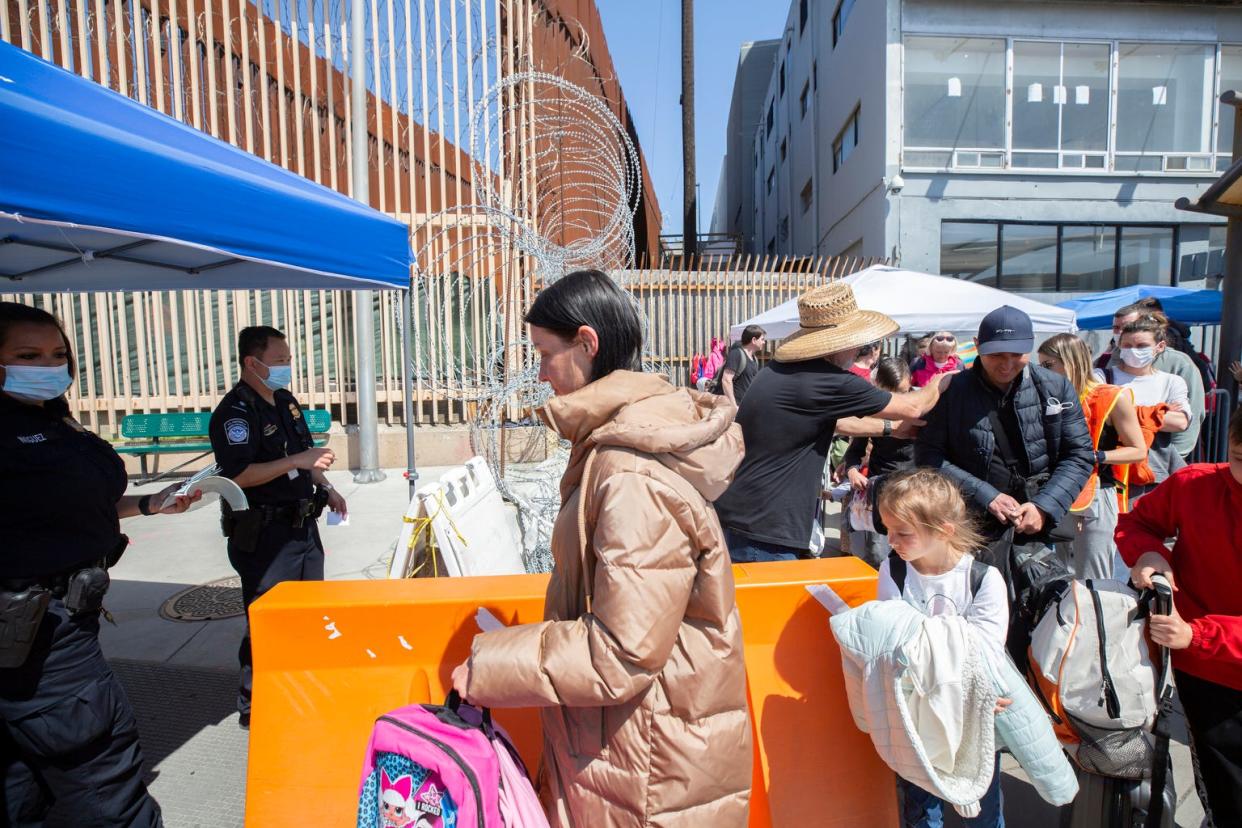Passover illuminates the plight of refugees, from Ukraine to our southern border

This weekend, Jews in Arizona and around the world will begin celebrating Passover, the eight-day festival commemorating the Israelites’ exodus from oppression in Egypt.
What families and friends are looking forward to the most, though, is probably the Pesach Seder, on the first night, in which we gather together to enjoy a meal of matzah, bitter herbs, charoset (an apple and nut paste) and much more.
But in addition to the delicious food and great conversation, we recite and study the Jewish people’s story via the Haggadah, as the tradition tells we are obligated to relive the experience of liberation, imagining each time that we personally are the ones going out of Egypt.
Today, as we watch the journey of Ukrainian refugees, Afghan refugees and Central American asylees, my community is deeply affected by the Passover narrative’s function of cultivating spiritual empathy for all human beings.
With almost 4 million refugees displaced from Ukraine, and the number of refugees worldwide at an all-time high, the surge in moral clarity that Passover provides is sorely needed.
We can see their stories reflected in our haggadah. We can experience their tears with our salt water. We can feel a charge to support them. Passover spiritually "worked" if we reenter after the holiday committed and prepared to serve.
We are called to relive this journey during Passover
This Pesach season, our thoughts should be centered on the needs of the refugee-and-asylee communities. As we imagine we ourselves are coming out of Egypt, we should remember that we’re not telling mere historical facts in the way a textbook might relate them. We’re actively participating in the passing on of the memory of freedom.
My wife, Shoshana, makes the best challah, traditional Jewish bread that is made carefully and beautifully, which takes a substantial amount time.
But during Pesach, we eat matzah, which is made without the luxury of time to leaven.
By recalling the Israelites’ hurry in preparing this bare-minimum food as they rushed out of bondage in Egypt, we can taste and picture the experiences of those around the world today who have needed to leave home on such short notice.
Here, at Arizona Jews for Justice (a project of Valley Beit Midrash), we’ve collected thousands of urgently needed supplies donated for refugees and asylees. This includes often-overlooked basics such as body wash, toilet paper and deodorant. By being commanded to recall what we would need on an emergency journey, we internalize and act on our obligation to come to the aid of others.
As we approach Pesach, we should remember that we will be imagining ourselves into the Passover story.
Freedom can inform how we live our lives
Tragically, others in the world, especially at our southern border, are not merely reenacting the narrative of the Book of Exodus but living it in real life. The mitzvah of celebrating Passover, then, calls us to participate in the pursuit of freedom and justice for all people.
We can disagree respectfully on the politics of nuances around border policy and number of refugees to admit each year. However, all of us committed to religious and spiritual ideals cannot disagree on the need for compassion for displaced people.
My primary religious source of motivation on this topic is the Passover story, which inspires deep moral imagination.
For those of us not celebrating this holiday, or who have other celebrations to draw from, perhaps we can find universal inspiration in the particular call to let the values of liberation inform how we live out our lives.
Just as the Israelites needed to flee Pharoah with the hopes of reaching the Promised Land, so too, Ukrainians today need to flee their persecution in hopes of their own refuge.
Will we welcome them with open arms? Or block them at the border with skepticism about their values and intentions? And how about the others from other countries lined up with their own unique narrative?
We recently had a young mother from Central America and her 2-year-old daughter, seeking asylum, in our home for a night after they were released from detention. While I couldn't communicate with them in Spanish, my little daughter was quickly playing and laughing with this young girl. Our children can teach us a new potential for love and sharing.
When I am at my Passover Seder this year, I will be proud to be American and to live in the state of Arizona, and I will be proud that we celebrate not only our unity but our diversity.
We should welcome refugees of all races and religions. This is what makes America a project with fighting for when viewed in light of the Passover story.
Rabbi Shmuly Yanklowitz is president & dean of Valley Beit Midrash and leader of Arizona Jews for Justice. He is the author of 22 books on Jewish ethics. Reach him at rabbi@valleybeitmidrash.org.
This article originally appeared on Arizona Republic: Passover reminds us about our obligation to help refugees

